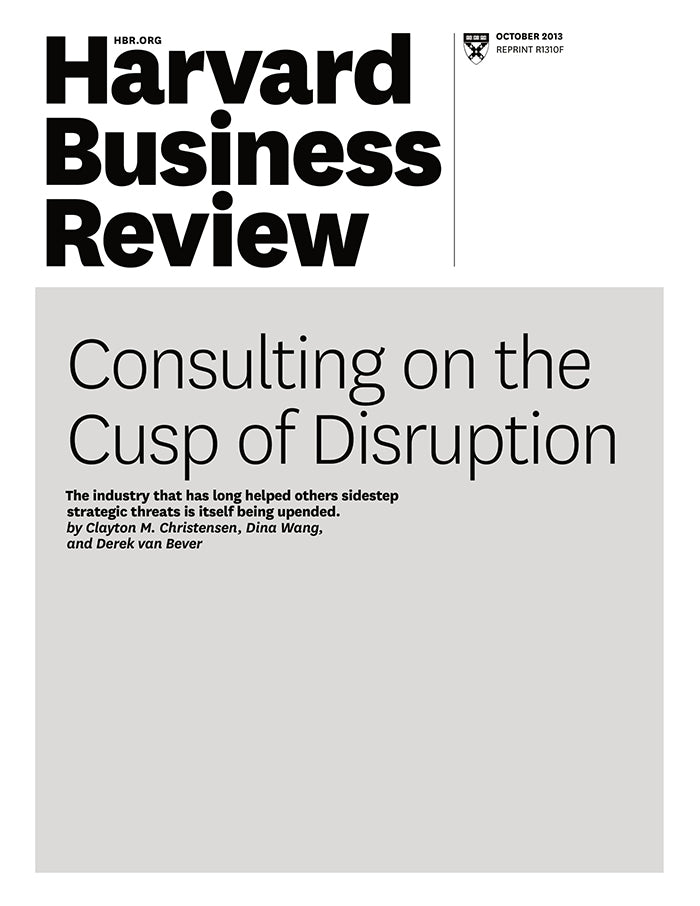Consulting on the Cusp of Disruption
受取状況を読み込めませんでした
Consulting's fundamental business model has not changed in more than 100 years: Very smart outsiders go into organizations for a finite period of time and recommend solutions for the most difficult problems confronting their clients. But at traditional strategy-consulting firms, the share of work that is classic strategy has sharply declined over the past 30 years, from 60% or 70% to only about 20%. What accounts for this trend? Disruption is coming for management consulting, the authors say, as it has recently come for law. For many years the professional services were immune to disruption, for two reasons: opacity and agility. Clients find it very difficult to judge a firm's performance in advance, because they are usually hiring it for specialized knowledge and capability that they themselves lack. Price becomes a proxy for quality. And the top consulting (or law) firms have as their primary assets human capital; they aren't hamstrung by substantial resource allocation decisions, giving them remarkable flexibility. Now incumbent firms are seeing their competitive position eroded by technology, alternative staffing models, and other forces. Market research companies and database providers are enabling the democratization of data. The vast turnover at consultancies means armies of experienced strategists are available for hire by former clients, whose increasing sophistication allows them to allocate work instead of relying on one-stop shops as they did in the past. Drawing on the theory of disruption, the authors offer three scenarios for the future of consulting.
【書誌情報】
ページ数:10ページ
サイズ:A4
商品番号:HBSP-R1310F
発行日:2013/10/1
登録日:2013/10/2


